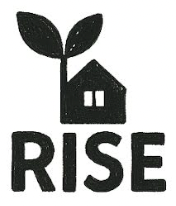Community First. Future Focused:
We are a community-based nonprofit committed to supporting thoughtful, equitable, and sustainable housing solutions in our neighborhoods.
The 78/88 Howard Street Proposal: What You Need to Know
The zoning application for 78/88 Howard Street presents the project as “affordable senior housing,” but the details tell a very different story.
Here is what the application and subsequent statements from the developer and pastor actually indicate:
A 47-unit multifamily building on 0.66 acres
Units approximately 250–275 sq ft each (micro-units)
Age restriction listed as 62+, though earlier iterations used 55+
The application removed the PSH label, but:
The developer has repeatedly stated they will pursue funding targeted to the most vulnerable populations, which is typically available only for Permanent Supportive Housing (PSH)
The developer also indicated to the KNO working group that the final resident mix will not be determined until after rezoning, because funding sources will dictate who qualifies
Institutional Controls Listed in the Application
These controls mirror PSH-style operations, not traditional senior housing:
Visitor ID scanning and registration
No overnight guests without formal approval
Security cameras and controlled access throughout
On-site management with strict monitoring
Rules and lease terms limiting vehicle ownership
“Services” listed but no operator or provider identified, no staffing plan, and no funding plan for supportive services
We Support YIGBY - But This Isn't It
YIGBY (Yes In God's Backyard) is a national movement of churches building affordable housing on underutilized property - housing for families, seniors, and working people who need homes they can afford. We support this movement and believe churches can be powerful partners in addressing housing needs.
But Turner's proposal isn't YIGBY. It's a 100% institutional Permanent Supportive Housing facility requiring specialized infrastructure and intensive services - fundamentally different from the mixed-income affordable housing that YIGBY represents.
YIGBY = General affordable housing for diverse community members
This Proposal = 100% institutional facility for high-acuity supportive housing
Churches across America are successfully building affordable housing at appropriate scale, with mixed-income integration, in suitable locations. This proposal abandons those principles for an unprecedented institutional facility in a residential neighborhood.
We Support Permanent Supportive Housing Done Right
Rise Atlanta supports permanent supportive housing for vulnerable populations. What we oppose is this specific 47-unit, 100% concentrated PSH development that contradicts evidence-based housing policy and threatens our residential neighborhood.
This isn't about who is served. It's about scale, design, and location.
The Evidence Against Large-Scale Concentrated PSH
Georgia's Own Policy Limits PSH Development
Georgia Department of Community Affairs limits the entire state to only 2 single-site PSH projects per year. This 47-unit development would consume 50% of Georgia's annual statewide PSH allocation in one Kirkwood neighborhood.
Why does Georgia DCA impose such strict limits? Because state housing experts recognize the operational challenges and concentration risks of large single-site PSH facilities.
Research Shows Smaller, Mixed-Income Models Work Better
National housing research consistently demonstrates:
Tenants in mixed-income properties (fewer than 50% PSH units) have 65% higher odds of housing retention than majority-PSH developments (Minnesota Housing Finance Agency)
Federal and state agencies now recommend maximum 25 units per PSH development with mixed-income integration
Scattered-site approaches show better tenant outcomes than concentrated facilities
Documented Operational Impacts
San Francisco's experience with large PSH developments shows the infrastructure reality:
141-unit facility generated 1,166 service calls in two years, including 656 police-related incidents
146-unit development experienced 11 fatal overdoses, social worker shooting, and systematic maintenance failures
City investigations documented operational chaos despite massive public investment
These aren't anti-PSH arguments - they're evidence that large concentrated facilities create operational demands that:
Overwhelm residential infrastructure
Require 24/7 crisis intervention capacity
Generate emergency service volumes incompatible with neighborhood streets
Fail both residents and communities
What's Wrong With This Specific Proposal
Textbook Spot Zoning
Current R-4 zoning permits 3-4 single-family homes
Proposal seeks 47 units = 1,500% density increase on a single parcel
Located deep in residential neighborhood core, not at edges or transition zones
Requires both spot rezoning AND comprehensive development plan changes
Sets dangerous precedent for residential neighborhoods citywide
Previous neighborhood rezoning has been appropriate:
Located at periphery near commercial zones (natural transitions)
Modest density increases (2-3x, not 17x)
Mixed-use or mixed-income character (not 100% institutional)
Consistent with comprehensive plan corridor goals
This proposal is fundamentally different:
Unprecedented density jump in residential core
100% institutional use masquerading as residential
No planning justification for such dramatic departure
Arbitrary benefit to single property owner
100% Concentration Contradicts Best Practices
Research recommends mixed-income integration, not 100% PSH
Georgia DCA underwriting standards make 100% PSH financially difficult by design
Evidence shows mixed developments have significantly better outcomes
Wrong Location
Residential neighborhood with elementary school nearby
Infrastructure inadequate for institutional operations
Only 6 parking spaces for 47 residents plus staff, service providers, emergency vehicles
Little Operational Transparency
Third-party operator not identified
No published service plan or staffing ratios
No community oversight mechanisms
Developer exits after construction, leaving long-term accountability unclear
The Better Alternative
We advocate for PSH development that follows evidence-based best practices:
Smaller scale: 20-30 units maximum per development
Mixed-income integration: 10-20% PSH units within broader affordable housing
Appropriate locations: Sites with adequate infrastructure and services
Scattered-site approach: Distributing PSH throughout community rather than concentrating
Strong operational plans: Identified operators with demonstrated experience
The Real Policy Conflict
State housing experts: Limit PSH carefully based on research and evidence
Atlanta political agenda: Push large concentrated models for speed and visibility over effectiveness
The result: A 55-unit facility that contradicts both Georgia DCA guidance and federal housing research, placed in a residential neighborhood where it violates zoning by 1,700%.
Our Position
This opposition is grounded in housing policy expertise, zoning law, and research on what actually works for PSH residents. We want vulnerable populations housed successfully - which is exactly why we oppose a development model that research shows has poor outcomes.
Effective PSH helps people thrive. Large concentrated facilities in inappropriate locations help no one.
These aren't anti-PSH arguments - they're evidence that large concentrated facilities create operational demands that:
Overwhelm residential infrastructure
Require 24/7 crisis intervention capacity
Generate emergency service volumes incompatible with neighborhood streets
Fail both residents and communities
Get Involved: Make Your Voice Heard
This proposed development at 77/88 Howard St NE will be discussed and voted on at upcoming community meetings. If you’re concerned about density, safety, or the lack of transparency from the developer and church, you need to get involved now.
Your voice matters. Your vote matters. Here’s how to take action:
1. Attend Community Meetings
This proposal will be reviewed by:
Kirkwood Neighbors’ Organization (KNO)
Neighborhood Planning Unit-O (NPU-O)
These meetings are your opportunity to ask questions, raise concerns, and vote.
2. Register to Vote in These Meetings
To vote, you must register at least 2 weeks before the NPU-O meeting. Even if you attend, you can’t vote unless you’re registered in advance.
Register for KNO (Historic Kirkwood Neighbors):
https://www.historickirkwood.org/membershipRegister for NPU-O (City Planning Participation):
https://www.atlantanpuo.org/ (It’s free!)
3. Stay Informed
Check back often at our website RISEatl.org and follow our Facebook page for regular updates as we continue to learn more about this proposal and how it will impact our community.
We’re not against helping people in need. But this proposal is too dense, too risky, and too vague. Kirkwood deserves better. Let’s work together for smart, inclusive, and transparent community planning.

